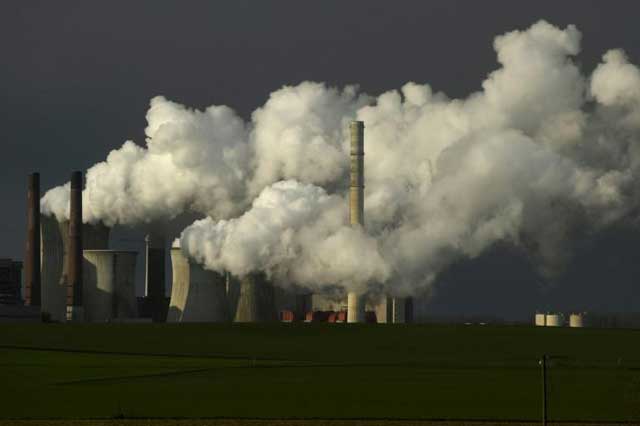
Paris, France | AFP | Global CO2 emissions from fossil fuels are set to drop by up to seven percent in 2020 because of the coronavirus pandemic, but even this dramatic decline — the sharpest since WWII — would barely dent longterm global warming, researchers reported Tuesday.
In early April, coronavirus lockdowns led to a 17 percent reduction worldwide in carbon pollution compared to the same period last year, according to the first peer-reviewed assessment of the pandemic’s impact on CO2 emissions, published in Nature Climate Change.
Four countries or blocs — China, the United States, the European Union and India — accounted for two-thirds of the downturn across the first four months of 2020, equivalent to more than one billion tonnes of CO2.
Total emissions from industry and energy last year came to a record 37 billion tonnes.
“Population confinement has led to drastic changes in energy use and CO2 emissions,” said lead author Corinne Le Quere, a professor at the Tyndall Centre for Climate Change Research at the University of East Anglia.
“These extreme decreases are likely to be temporary, however, as they do not reflect structural changes in the economic, transport or energy systems.”
If the global economy recovers to pre-pandemic conditions by mid-June — an unlikely scenario — CO2 emissions in 2020 are projected to drop only four percent, Le Quere and her team calculated.
But if lockdown restrictions persist throughout the year, the decline will be around seven percent.
With nearly five million confirmed infections and 320,000 deaths, the COVID-19 pandemic has deflected attention from the climate crisis that dominated global concerns in 2019.
But the climate threat remains, other experts warn.
“This will make barely a dent in the ongoing build-up of carbon dioxide in the atmosphere,” said Richard Betts, head of climate impacts research at Britain’s Met Office Hadley Centre.
– Like filling a bathtub –
“We need to stop putting it there altogether, not just put it there more slowly,” he said.
“It’s like we’re filling a bath and have turned down the tap slightly — but not turned it off. The water is still rising, just not as fast.”
Earth’s average surface temperature has so far risen by one degree Celsius above pre-industrial levels — enough to amplify deadly droughts, heatwaves and superstorms engorged by rising seas.
Under the 2015 Paris climate treaty, nearly 200 nations pledged to cap global warming at “well below” 2C.
But the UN’s Intergovernmental Panel on Climate Change (IPCC) subsequently determined that 1.5C is a far safer temperature guardrail.
The pandemic has underscored just how difficult it will be to hit that more ambitious target.
Emissions must fall 7.6 percent — in line with the worst-case lockdown scenario for 2020 — every year this decade to ensure the 1.5C cap, unless other means are found to remove carbon from the atmosphere, scientists calculate.
“The pandemic has shown us that major structural changes in the transport and energy systems are required,” noted Mark Maslin, a professor of climatology at University College London.
Some experts have suggested the pandemic could speed up that transition.
“Fossil fuels seem to be getting hit harder relative to renewables,” Glen Peters, research director of the Center for International Climate Research in Oslo, told AFP.
– Sectors hit unevenly –
“If this (continues) we may come out of COVID with emissions going down, since renewables have been able to take more relative space, pushing out some of the most polluting fossil fuels, especially coal.”
But the multi-trillion dollar rescue packages — especially in the United States and China — hastily assembled to stave off another Great Depression send mixed signals when it comes to building a green global economy.
“There is a high risk that short-sightedness will lead governments to lose track of the bigger picture and put money into highly polluting sectors that have no place in a zero-carbon society,” said Joeri Rogelj, a researcher at Grantham Institute and Imperial College London.
Different sectors of the economy have been hit unevenly by measures taken to halt the pandemic, the study revealed.
On April 7 — the day global CO2 pollution dropped the most — emissions from land transport accounted for more than 40 percent of the decrease, while industry, electricity generation, and aviation accounted for 25, 19 and 10 percent, respectively.
Calculating global emissions of CO2 and methane — another potent greenhouse gas — usually takes months or longer, but methods used in the study could help guide decision-making, the authors said.
“If we can see the effect of a policy in the space of months as opposed to years then we can refine policies more quickly,” said Peters.
 The Independent Uganda: You get the Truth we Pay the Price
The Independent Uganda: You get the Truth we Pay the Price



